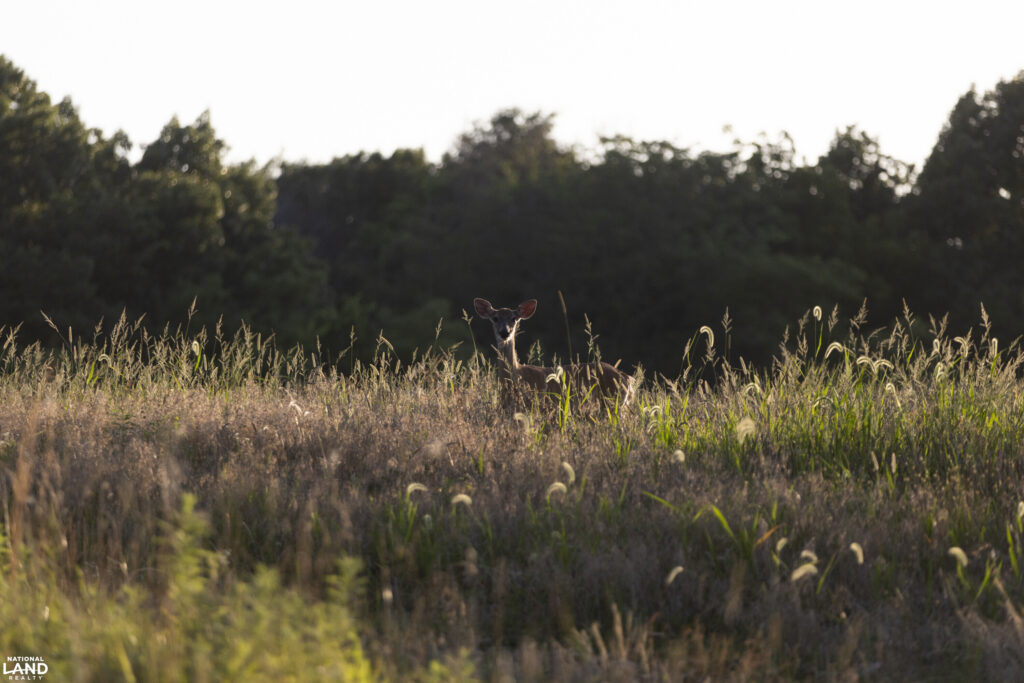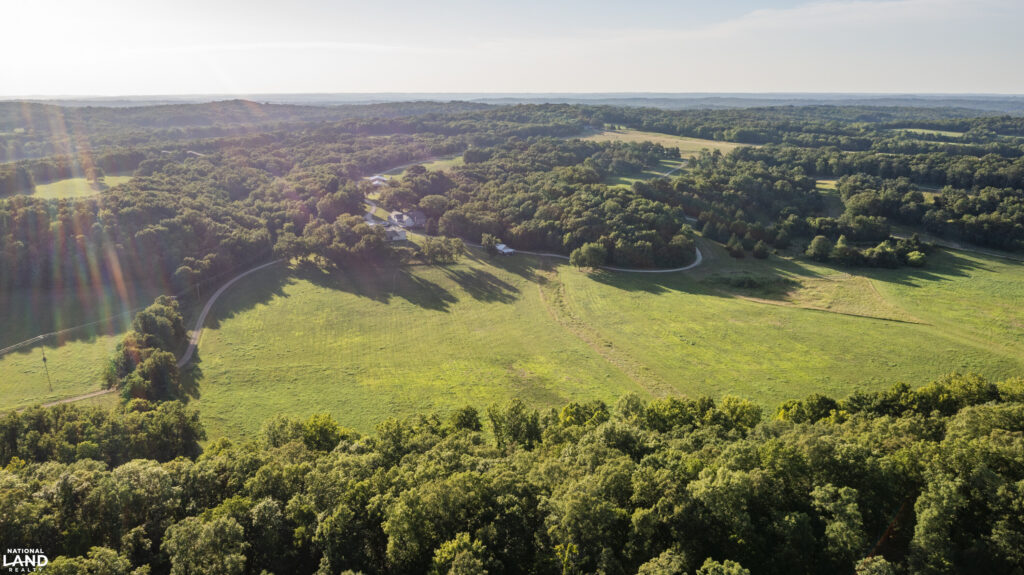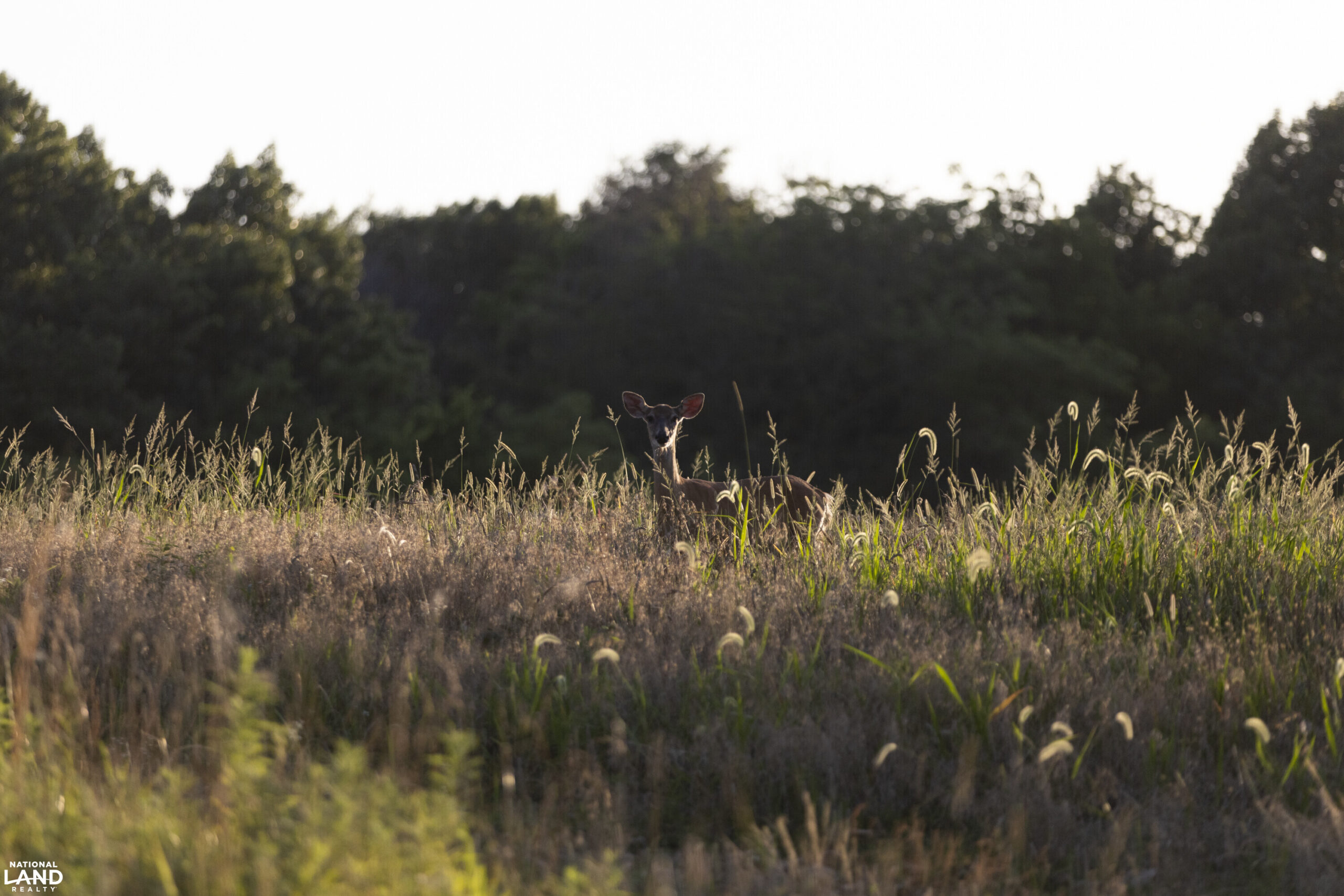We get a lot of questions about how folks go about finding the right properties for hunting leases as well as how to find them and what the rules are. We reached out to Aaron Sutton, Managing Broker at National Land Realty. Aaron brings a vast amount of knowledge to the land sales market as an avid sportsman, conservationist, and role model to young hunters. He has traveled North Carolina hunting from the mountains to the coast and ventured throughout the US and Canada on hunting trips as well. With over 15 years of real estate experience, Aaron understands how to obtain or sell properties with the customer’s best interests at heart. He also has created a niche for himself by building relationships amongst clients as he promotes integrity, honesty, and creating mutual trust between himself and buyers or sellers.
1. What exactly is a land lease, and how does it work?
There are different types of leases, but a land lease is exchanging money for the use of a property. Hunting leases are strictly recreational, so you’ll get more enjoyment out of it as opposed to a farm lease which is more of a business lease.
3. Who typically rents land for hunting, and what kind of land are they looking for?
Typically it’s groups of people looking for private land to hunt on. The type of property they’ll look for varies because different regions of the country provide different experiences. For example, duck hunting properties are really common in Arkansas, whereas the Midwest is more deer hunting. Acreage size varies regionally a lot too. Here in North Carolina, we have smaller tracts that have been divided up over the years. Out in the Midwest though, you’ll see more multi-thousand-acre tracts with a single owner.
4. What are the main benefits of leasing land for hunting instead of purchasing it?
The main reason most people choose leasing is financial. If you could lease a tract of 500 acres for say $4,000, and you’ve got 5 people willing to split that lease, now your group can all hunt for $800 a piece. Compare that to the cash you’d need to buy a $250K or $400K hunting property where you’d likely need to finance that purchase and wind up paying $1,000 a month. Most guys can’t spend that kind of money on a recreational property, so instead they group up with their buddies and lease one.
5. What should someone look for when they are considering leasing land for hunting?
The first thing to consider is budget, which ultimately dictates how many acres you can get. I like to say you should shoot for about 80-100 acres per hunter if you’re hunting rifle, if you’re bowhunting you can have a little less, but that’s typically the range I recommend.
You also need to consider the type of game you want to hunt. If you’re going duck hunting, then the property needs to have a duck swamp on it for birds to come in. Same for deer hunting, how accessible are the stands or blinds? What do the trails look like?
6. How long do hunting leases typically last, and are they renewable?
Leases are typically renewable and sometimes you can do long-term leases that run for 5 or 10 years. Most leases run for about a year, anywhere from January 1st to December 31st but those dates are completely negotiable between the lessee and landowner.
7. Are there any common mistakes or misunderstandings that people make when leasing land for hunting?
The biggest mistake when it comes to leasing is failing to follow the lease terms. If the lease says you can only have 5 people out with you and you show up with 9, then you’re breaking your lease terms, and the landowner can cancel your lease and keep your money. It’s the same for game restrictions. If your lease says you’re only permitted to hunt deer but you sneak in during spring turkey season and kill a turkey, you’ve violated that lease.
8. What responsibilities does a lessee (the person leasing the land) have, and what does the landowner typically handle?
For the lessee, they’ve usually got to maintain a liability insurance policy on the property. If somebody gets hurt, the landowner doesn’t want to get sued. That’s their number one responsibility along with following the terms of their lease. Landowners will often specify that their lessees need to do some general upkeep around the property like mowing trails and ditches.
For landowners, they really just need to allow access for their lessees. They can’t lease their property and then decide ‘Actually, I don’t want you out there today because I want to take my kids fishing’ without something in writing in their lease terms.
9. Are there any legal considerations or paperwork involved in leasing land for hunting?
Lessees are typically the party to maintain a liability insurance policy. Other than that, it’s really just the lease agreement that each party signs detailing the terms of the lease. Some lease facilitators like National Land Realty can provide insurance policies and write up these lease agreements for landowners.
10. How do landowners benefit from leasing out their property for hunting?
Obviously there’s the income from the lease, that’s the main benefit. The other big one is having another set of eyes on your property for added security. This is especially good for out-of-state landowners or people who can’t get out to their property very often. Your lessee will be out there keeping an eye on things and can let you know about any trespassers or poaching going on while you aren’t around.
11. How do payments and pricing typically work for a hunting lease?
Smaller leases, of say $10,000 or less, typically get paid in a lump sum at the start of the lease. With some of the bigger leases, it starts to vary. Some still prefer to make a single payment while others opt to make monthly payments. Payment is usually negotiable between the landowner and their lessees.
Pricing is done on a per-acre basis and it varies regionally. It also has to do with the type of game. Midwest deer hunting lease are more expensive than in NC or SC since the quality of the deer out there is just so much better. In NC, we’re anywhere from $8 to $15 an acre, whereas in the Midwest it’s closer to $30-50 an acre.
12. Is leasing land for hunting a good way to earn passive income, and how can someone get started if they want to lease their own land?
Yes, you can definitely earn some decent passive income with little effort on the landowner’s part, especially when you’re working with a knowledgeable lease facilitator like NLR who will handle the whole process and keep working with you throughout your lease. I’d tell them to start doing some research into hunting leases to better understand the process. There are lots of informational resources online that can help them get familiarized with the process.
13. Are there any specific rules or regulations hunters must follow when using leased land?
You’ve got to follow your state and federal hunting regulations, first and foremost. Then you also have to stay on the property. You can’t trespass onto the neighbor’s property and poach on someone else’s land. And then obviously any other rules specified by the landowner in the lease agreement.
14. What types of bonds or insurance does a lessee need to protect themselves and the landowner
It’s really just the liability insurance policy. These policies are usually just 36 cents per acre, so they’re pretty inexpensive and they keep everyone protected in case anything happens.
15. What resources or services does National Land Realty provide to people interested in leasing land?
We’ve got plenty of informational content on our blog and the National Land Podcast. We’re equipped to handle ag leases and hunting/recreational leases and recommend anyone interested in leasing their land or finding the right property to lease get in touch with us!
16. How does someone get in touch with National Land Realty if they want to lease or rent land for hunting?They can find more information about leasing with National Land Realty and fill out a contact form on our website, NationalLand.com/leases. Alternatively, they can get in touch with me at [email protected] for any leasing-related questions.


Read the full article here




